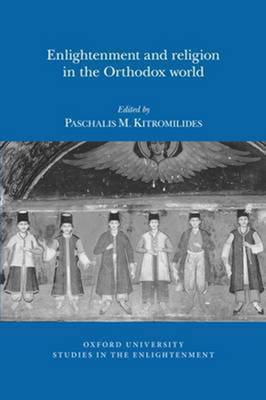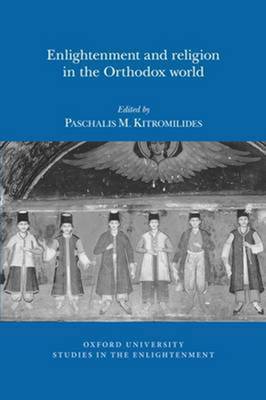
- Retrait gratuit dans votre magasin Club
- 7.000.000 titres dans notre catalogue
- Payer en toute sécurité
- Toujours un magasin près de chez vous
- Retrait gratuit dans votre magasin Club
- 7.000.0000 titres dans notre catalogue
- Payer en toute sécurité
- Toujours un magasin près de chez vous
Enlightenment and Religion in the Orthodox World
98,00 €
+ 196 points
Description
The place of religion in the Enlightenment has been keenly debated for many years. Research has tended, however, to examine the interplay of religion and knowledge in Western countries, often ignoring the East. In Enlightenment and religion in the Orthodox World leading historians address this imbalance by exploring the intellectual and cultural challenges and changes that took place in Orthodox communities during the eighteenth century. The two main centres of Orthodoxy, the Greek-speaking world and the Russian Empire, are the focus of early chapters, with specialists analysing the integration of modern cosmology into Greek education, and the Greek alternative 'enlightenment', the spiritual Philokalia. Russian experts also explore the battle between the spiritual and the rational in the works of Voulgaris and Levshin. Smaller communities of Eastern Europe were faced with their own particular difficulties, analysed by contributors in the second part of the book. Governed by modernising princes who embraced Enlightenment ideals, Romanian society was fearful of the threat to its traditional beliefs, whilst Bulgarians were grappling in different ways with a new secular ideology. The particular case of the politically-divided Serbian world highlights how Dositej Obradovic's complex humanist views have been used for varying ideological purposes ever since. The final chapter examines the encroachment of the secular on the traditional in art, and the author reveals how Western styles and models of representation were infiltrating Orthodox art and artefacts. Through these innovative case studies this book deepens our understanding of how Christian and secular systems of knowledge interact in the Enlightenment, and provides a rich insight into the challenges faced by leaders and communities in eighteenth-century Orthodox Europe.
Spécifications
Parties prenantes
- Editeur:
Contenu
- Nombre de pages :
- 345
- Langue:
- Anglais
- Collection :
- Tome:
- n° 2016
Caractéristiques
- EAN:
- 9780729411738
- Date de parution :
- 03-02-16
- Format:
- Livre broché
- Format numérique:
- Trade paperback (VS)
- Dimensions :
- 156 mm x 233 mm
- Poids :
- 299 g

Les avis
Nous publions uniquement les avis qui respectent les conditions requises. Consultez nos conditions pour les avis.





